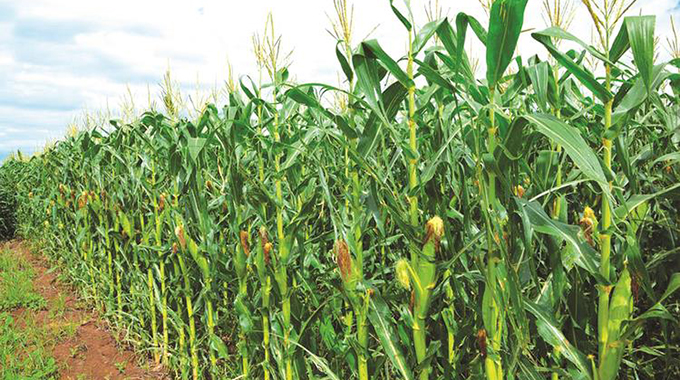Covid-19 wrong foots Lowveld winter maize project

George Maponga in MASVINGO
Plans by the Masvingo political leadership to expand the winter maize project in the Lowveld this year have been derailed by the Covid-19 outbreak, amid growing concerns that the objective to broaden the crop varieties portfolio and ramp up output might be affected.
A partnership involving Government, Masvingo Development Trust and Lowveld sugar producer Tongaat Hulett Zimbabwe, had been planning to expand the winter maize project from the traditional average of 330 hectares to about 5 000ha.
The planned expansion was in response to food insecurity in the light of climate-change induced droughts.
Talks for Tongaat to release additional land for the project at Mwenezana estates in Mwenezi were at an advanced stage following a request by Government for the project to cover other crops like sunflower and sorghum seed to meet strategic national requirements.
Land preparation and planting was initially earmarked to start this month only for the coronavirus outbreak and subsequent national lockdown to put the plans off rails.
Masvingo Development Trust chairperson Mr Lovemore Matuke said work on the project would only proceed if their request for a waiver on the requirement outlawing the gathering of over 50 people was granted.
The Trust will soon formally apply to Government through the Minister of Lands, Agriculture, Water and Rural Resettlement for the special waiver, paving the way for the project to start.
Government has requested for the project to cover seed for critical crops such as sorghum and sunflower to aid the thrust to engender national food security.
“This year we will not only grow winter maize but also sunflower and sorghum seed at the request of Government. We had finished talks with Tongaat over additional land to expand the project so this year, we will not have not less than 2 000ha under winter crops in Chiredzi and Mwenezi,” he said.
Mr Matuke noted that diversification of crops other than winter maize was important to reduce thefts.
“Yields of the last winter maize crop were affected by thefts and we are not only boosting security this year but also moving to other crops that ordinarily would be a hard target for thieves such as sunflower and sorghum seed,” he said.









Comments